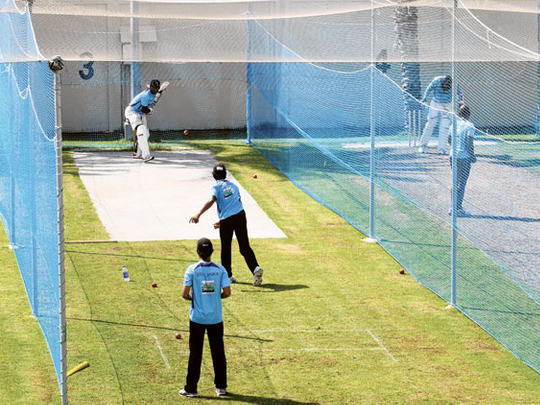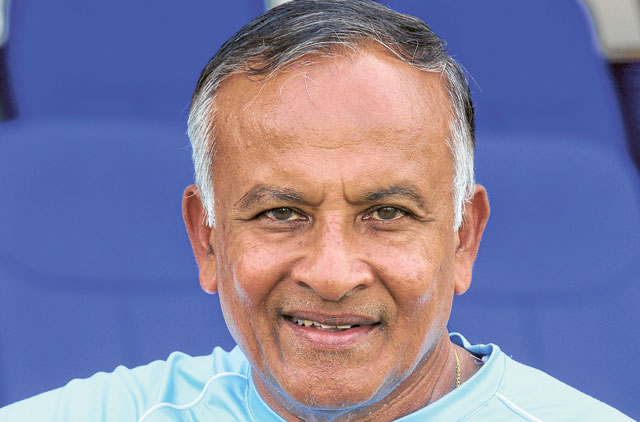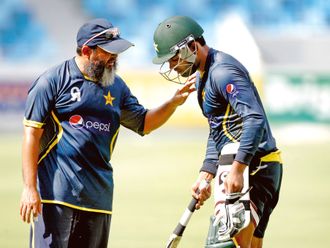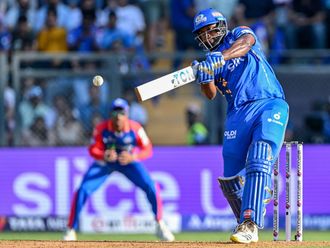
Sharjah: Anura Tennekoon, manager of the Sri Lanka team, played a pivotal role in the rise of his country as a power in world cricket. It was through talented batsmen like Tennekoon that the world realised that Sri Lanka is a power to be reckoned with.
He kept scoring heavily before Sri Lanka gained Test status and was appointed captain for the 1975 World Cup. He captained the team even in his last one-day series in the 1979 World Cup and top- scored with 59 runs in his last innings against New Zealand at Trent Bridge.
"Sri Lanka is now going through a transitional period. We had bowlers like Muttiah Muralitharan and Chaminda Vaas who contributed a lot by bowling in any condition and picked up wickets," he said.
"Muralitharan is a bowler hard to replace — we do not know whether he can ever be replaced. Vaas was a fine pace bowler with lots of control and knew the art of bowling.
"Now with [Kumar] Sangakkara giving up the captaincy after the last World Cup, we are still to fill that void because Tillakaratne Dilshan is relatively new to the job at the international level. Hence this is a transitional period," Tennekoon told Gulf News at the Sharjah Cricket Stadium yesterday.
Tennekoon feels that the only way to level the series against Pakistan is by batting well in the first innings. "The most important factor in this Test match would be our batting which has failed over and over again in the first innings. We did not get enough runs in the first innings, but if we are able to correct that situation and score above 350 runs, if we bat first, then we will be in a position to put Pakistan under pressure," he added.
Asked whether it has been very frustrating for Sri Lanka which, despite reaching the final of the World Cup twice, could not lift the title, Tennekoon said: "Reaching and not crossing the line is a big disappointment. In the West Indies World Cup final, we were unlucky with the weather when things were going well for us. In the end we had to even bat under poor light.
"In the last World Cup final we lost the game because our players had to play against virtually the whole of India and there was tremendous pressure at the ground. Still we did not go down badly and scored around 275 runs but we did not bowl well enough to defend that score," he said.













